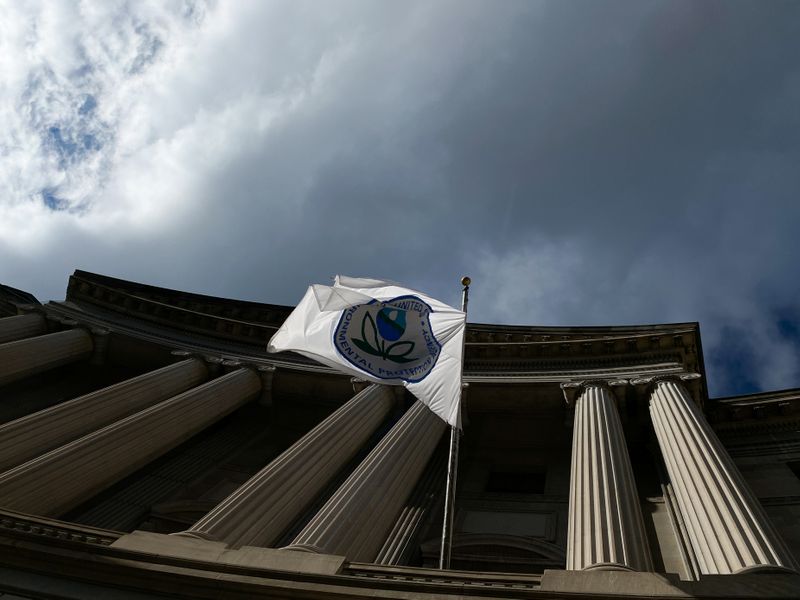WASHINGTON (Reuters) – Nine states on Wednesday filed a lawsuit against the U.S. Environmental Protection Agency for relaxing a range of companies’ compliance and monitoring requirements with federal clean air and water laws in response to the coronavirus pandemic, arguing the policy is too broad and not transparent.
Under the temporary policy announced on March 26, the EPA said it would not seek penalties for violations of routine compliance monitoring, integrity testing, sampling, laboratory analysis, training, and reporting or certification obligations in situations where the EPA agrees that COVID-19 was the cause.
The states, led by New York Attorney General Letitia James, argued that the EPA issued a broad and open-ended policy that gives polluters too much leeway instead of using enforcement discretion “as authorized by law.”
“The policy’s effective waiver of these requirements, which are foundational to our federal environmental laws, exceeds EPA’s authority,” the attorneys general said.
The coalition of the nine states – New York, California, Illinois, Maryland, Michigan, Minnesota, Oregon, Vermont and Virginia – argue that the EPA lacks legal authority to waive “critical monitoring and reporting obligations that inform regulators and the general public of pollution hazards” and failed to weigh the impacts the relaxation policy will have on public health amid the coronavirus pandemic.
Their lawsuit comes a month after more than a dozen environmental groups led by the Natural Resources Defense Council, whose president is former Obama EPA Administrator Gina McCarthy filed their own challenge in the same New York federal court.
Former Obama EPA enforcement chief Cynthia Giles, who filed a brief last week supporting the environmental group lawsuit, told Reuters that the agency has never applied this kind of policy so broadly.
“In the past, EPA has only eased compliance obligations in a targeted way to address specific problems, such as Superstorm Sandy,” she said.
Current EPA chief Andrew Wheeler told reporters in March that the coronavirus outbreak was an unprecedented national crisis and that he expected “regulated facilities to comply with regulatory requirements, where reasonably practicable.”
(Reporting by Valerie Volcovici; Editing by Marguerita Choy)


















